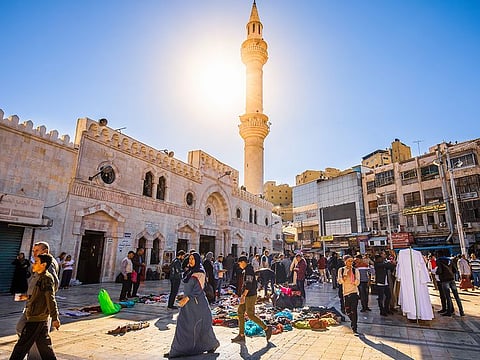The problem with Jordan’s economy
Going forward, the country’s private sector must be freed to play a more robust role

A recently published survey by the respected University of Jordan’s Center for Strategic Studies survey notes that Jordanians are unhappy with the rise in unemployment and poverty rates, inflation and the high cost of living across the board.
The warning lights have been on for months, if not years. So it was hardly surprising that earlier this month, truck operators and drivers protested, leading to riots in some cases. They demanded an immediate drop in fuel prices among other things.
The government said it cannot do that because a drop in prices would deny the treasury of millions of dinars it needs to pay for salaries and to control a widening budget deficit.
The crisis lingered but was partially resolved when tribal heads accepted a government promise to lower fuel prices at the beginning of January while accepting to raise freight fees.
The latest crisis has underlined the gravity of the socioeconomic situation in Jordan. With the unemployment rate edging 24 per cent; reaching almost 50 per cent among youth, public discontent with short-term government fixes has been building up. Public spending has been constrained, creating cash flow problems for the private sector.
Meanwhile, the national debt has been climbing at an alarming rate, reaching almost 100 per cent of the GDP. Prime Minister Bisher Khasawneh has said that the state budget will continue to suffer from a $2.8 billion deficit in the coming three years, which it must cover through borrowing. For millions of Jordanians there is no light at the end of the tunnel.
IMF praise for Jordan
Ironically, the kingdom has been working with the International Monetary Fund (IMF) to reform the national economy since 2004. Despite worsening living conditions, and alarming economic indicators, the IMF has been praising the country’s performance; resulting in extending more loans to the government.
Meanwhile, the elephant in the room is yet to be tackled and that is the size of the public sector, which consumes more than 70 per cent of the annual state budget, mainly in salaries, leaving very little for capital spending on new projects and public works.
Reducing the size of the public sector is a political rather than an economic issue. A major restructuring of the public sector means that thousands of government employees would end up losing their jobs. No government is willing to take that risk.
The only possible avenue is to provide incentive to the private sector so that it would create new job opportunities. With more than 100,000 Jordanians joining the labour force annually that remains a tall order.
So far the government has revised the investment law with the aim of attracting more foreign investments. Under royal patronage, it launched a 10-year economic $40 billion program that hopes to create at least one million new jobs.
But there are many caveats that stand against achieving such objectives. Jordan is already among the top countries in receiving foreign aid and soft loans, but a global recession is looming and 2023 will be a difficult year for most developing countries as rich economies grapple with inflation, energy shortages, among other things.
The government blames the pandemic, the war in Ukraine and other geopolitical issues for hamstringing the Jordanian economy. Such factors have certainly compounded the challenges.
Going forward the Jordanian private sector must be freed to play a more robust role in providing jobs while taking a load off the government’s back. The time has come for bold decisions.
Osama Al Sharif is a journalist and political commentator based in Amman.



